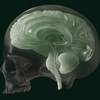problem
The Nonidentity Problem
The Stanford Encyclopedia of Philosophy (Summer 2019 edition), Zalta, E. (red.). https://plato.stanford.edu/archives/sum2019/entries/nonidentity-problem The nonidentity problem raises questions regardin
The Democratic Boundary Problem Reconsidered
Ethics, Politics & Society. A Journal in Moral and Political Philosophy, N. 1, 2018, pp.89-122. Abstract Who should have a right to take part in which decisions in democratic decision making? This ““a people”, who takes decision in a democratic fashion. However, that a decision is made with a democratic decision method by a certain group of people doesn’t suffice for making the decision democratic or satisfactory from a democratic perspective. The group also has to be the right one. But what makes a group the right one? The criteria by which to identify the members of the people entitled to participate in collective decisions have been surprisingly difficult to pin down. In this paper, I shall revisit some of the problems discussed in my 2005 paper in light of some recent criticism and discussion of my position in the literature, and address a number of new issues.

Wicked problem governance
By investigating the effects of the Covid-19 pandemic and climate change on the interaction between science, policy and the public, this project aims to solve how public governance can better deal with severe crises in the future.
Transformative Experience and the Shark Problem
Philosophical Studies Abstract In her ground-breaking and highly influential book Transformative Experience, L.A. Paul makes two claims: (1) one cannot evaluate and compare certain experiential outcomes evaluate and compare certain intuitively horrible outcomes (e.g. being eaten alive by sharks) as bad and worse than certain other outcomes even if one cannot grasp what these intuitively horrible outcomes are like. We argue that the conjunction of these two claims leads to an implausible discontinuity in the evaluability of outcomes. One implication of positing such a discontinuity is that evaluative comparisons of outcomes will not be proportionally sensitive to variation in the underlying features of these outcomes. This puts pressure on Paul to abandon either (1) or (2). But (1) is central to her view and (2) is very hard to deny. We call this the Shark Problem.
Completed: The boundary problem in democratic theory
What decisions should be made with the democratic method? The core question of this project is: Who should have a right to take part in which decisions?
Population Ethics and the Non-Identity Problem
Welcome to a workshop on the non-identity problem and population ethics at the Institute for Futures Studies in Stockholm. The workshop will focus on the evaluative and moral significance of acts that
Studies on the boundary problem in democratic theory
Working papers 2022:1-11 Editor: Paul Bowman Proximity Principle, Adieu Robert E. Goodin Reconceiving the Democratic Boundary Problem David Miller The Boundary Problem and Platitudes About Democracy: A Conc
Random Deviations and the Micro-Macro-Problem
Michael Mäs, ETH Zurich Economic and psychological research has led to significant improvements in our theories of human behavior. Yet, a considerable part of individuals’ behavior remains unexplained

Beyond reductionism: Contingent grounding and the Mind-Body Problem
I det här projektet undergrävs de två traditionella sätt på vilka man har betraktat kropp-medvetandeproblemet och föreslår en ny teori.
Ethical machine decisions and the input-selection problem
Synthese 199 Abstract This article is about the role of factual uncertainty for moral decision-making as it concerns the ethics of machine decision-making (i.e., decisions by AI systems, such as autonomo








